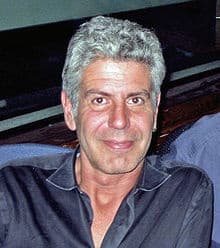Cuban church leaders press for end to religious travel restrictions
WASHINGTON, D.C. – Religious leaders in the United States and Cuba are hopeful that U.S.-imposed restrictions on religious travel and financial transfers soon will be eased by the Obama administration.
In a Nov. 15-16 visit, a delegation of Cuban Protestant church leaders from the Cuban Council of Churches pressed their concerns about the inhibiting effects of the travel restrictions and financial transfers in meetings with officials of the U.S. Department of State and the National Security Council. They also spoke at a briefing for members of Congress and their staff aides, hosted by Representatives Jeff Flake (R-AZ) and Jim McGovern (D-MA)
One objective of their meetings was to convince the Obama administration to remove severe U.S. restrictions on religious and other “people-to-people” travel, to Cuba. The tightened restrictions, in place since 2005, are an outgrowth of the Bush administration’s new interpretation and application of the U.S. Code governing travel.
The Rev. Raul Suarez Ramos, director of the Martin Luther King, Jr. Memorial Center in Havana, said that the long-standing historical relationship “was seriously impaired by the former administration because U.S. churches were given very limited ability to travel to Cuba and many Cuban religious leaders were not given visas to come to the United States.”
Under the tightened restrictions national religious organizations like the National Council of Churches and Church World Service, and their member denominations, saw their eligibility for travel to Cuba reduced to no more than once per quarter each year, along with other limitations.
According to Rev. Suarez, the situation has improved for Cuban church leaders to receive visas from the U.S. State Department to come to the United States, but “there are still many limitations.”
Those limitations pose a significant problem, says the Rev. John L. McCullough, executive director and CEO of New York-headquartered Church World Service.
“We have little to no flexibility in terms of responding to situations in a timely and appropriate manner by sending the right individuals at the right time to help nurture and develop our relationship with the people and the churches in Cuba,” McCullough said from his office in New York.
Advocates for lifting the travel ban believe there may be reason for optimism.
Following a Nov. 1 White House meeting in which American religious leaders discussed a number of issues, including Cuba, with President Obama, McCullough noted that the President , “indicated an appreciation for the historic relationship” between the churches of Cuba and the United States and “seemed very receptive to deepening the dialogue” around the issue of religious travel to Cuba.
Despite the completion of an inter-agency review of Cuba policy and talk in the Beltway earlier this fall of an impending softening of the administration’s position on travel, there has not been any announcement of a change. The administration is able to remove the restrictions on religious and other “people to people” travel without congressional approval. In April 2009, President Obama removed time restrictions on Cuban-Americans traveling to the country to visit family members.
The delegation also expressed concern that U.S. restrictions on financial transfers are preventing U.S. churches from providing some retired Cuban clergy the pension support owed to them for service during the years when Cuban churches were mission churches of U.S. denominations. This unfortunate situation is causing great distress among many elderly clergy.
The delegation noted that the travel and financial restrictions were two of many harmful aspects of the almost five-decade-old U.S. embargo against Cuba. They urged an end to the embargo and restoration of normal diplomatic relations to allow full engagement between the people of the United States and the people of Cuba.
“Our criticism of the embargo is not for ideological or political reasons,” Rev. Suarez said at the Congressional briefing, “but for spiritual reasons. The embargo causes suffering for the Cuban people.”
The Rev. Pablo Oden Marichal Rodriguez, Executive Secretary of the Cuban Council of Churches and Vice-President of the Evangelical Theological Seminary of Matanzas, Cuba, also emphasized that the embargo “has slowed down the development of the churches in Cuba. It has prevented U.S. churches from participation in the mission of the churches in Cuba.”
The delegation was invited to Washington, D.C. by The Presbyterian Church (USA) Office of Public Witness, which co-hosted them along with Church World Service, the Latin America Working Group, and the Washington Office on Latin America, all long-time partners in the faith community’s robust advocacy effort around Cuba travel and embargo issues.
“We are grateful for the solidarity of U.S. churches with us,” said the Rev. Rafael Columbe Cobas, president of the Pentecostal Christian Church in Cuba,
Members of the delegation from Cuba also included Rev. Marcial Miguel Hernández Salazar, president of the Cuban Council of Churches and president of the Free Evangelical Church in Cuba; Rev. Dr. Reineiro Arce Valentín, moderator of the Reformed Presbyterian Church in Cuba and President of the Evangelical Theological Seminary of Matanzas; Rgt. Rev. Griselda Delgado del Carpio, coadjutor Bishop of the Episcopal Church in Cuba; and Rev. Humberto Fuentes, vice-president of the Cuban Council of Churches and pastor of the Methodist Church in Cuba.

